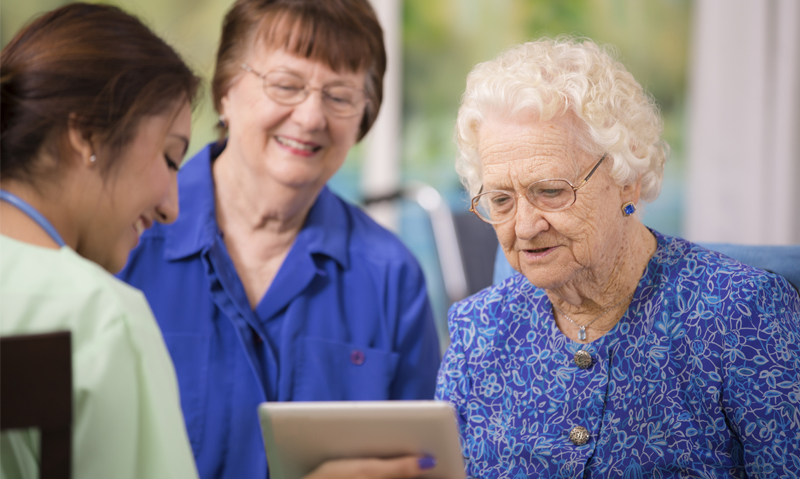GPs should routinely ask their older patients to set up a personally controlled electronic health record to help them share medical information with their families, according to the chair of the National E-Health Transition Authority.
Dr Steve Hambleton, who is also a Queensland GP, said that in his experience only a couple of patients have ever declined the chance to register for a personally controlled electronic health record (PCEHR).
“From a GP point of view, we do want a patient to share information with their family, especially as they get older and develop more illnesses”, Dr Hambleton told MJA InSight.
He was commenting on US research that found elderly patients often shared control of their personal health information and decision making with family and friends, but the sharing involved complex issues, even under the most well meaning circumstances. (1)
The research was based on group discussions with patients aged over 75 years and with individuals who assisted an older family member, finding broad support for sharing personal health information with caregivers if it would benefit the older patient. However, concerns were raised about autonomy and control, respect for preferences, micromanagement and snooping, and unintended information disclosure.
An accompanying commentary said the study highlighted the importance of developing user-centred software that met the information sharing needs and preferences of older patients and their families. (2)
Dr Hambleton told MJA InSight that Australia’s approach to information sharing was “the envy of nearly every other country in the world”.
He said the PCEHR allowed a patient to give a nominated family member, or an authorised representative, access to their medical information.
“The PCEHR is an extraordinary achievement. It’s an easy opt-in, opt-out resource that has standardised information, standardised nomenclature, standardised medical terminology”, he said.
Dr Jesse Jansen, of the University of Sydney’s school of public health, told MJA InSight that the US study cohort was not directly applicable to the whole of Australia as it was conducted in a metropolitan area among a group of well educated, white and mostly female participants.
“In the Australian context, the findings might be different for older Australians and their families living in rural areas, and for older people from CALD [culturally and linguistically diverse] backgrounds”, Dr Jansen said.
However, she agreed with the researchers that there was no one-size-fits-all approach to information sharing because “not only do preferences differ from individual to individual, but they are also likely to vary over time depending on how healthy or frail the older person is”.
Ian Day, chief executive officer of the Council on the Ageing NSW, told MJA InSight that “right now as a culture, we’re not doing an overly good job at preparing people for the latter stage of their life”.
Mr Day said that elder abuse was becoming a “major” problem, underlining the importance of encouraging patients to nominate, early on, which members of their family they would like to share their medical information with.
Dr Jansen said that despite the size of Australia’s ageing population, they were still considerably underrepresented in medical and psychosocial studies.
“Little is known about how to best address the decision-making needs of older people and their families so more research is clearly needed”, she said.
(Photo: Pamela Moore / iStock)

 more_vert
more_vert